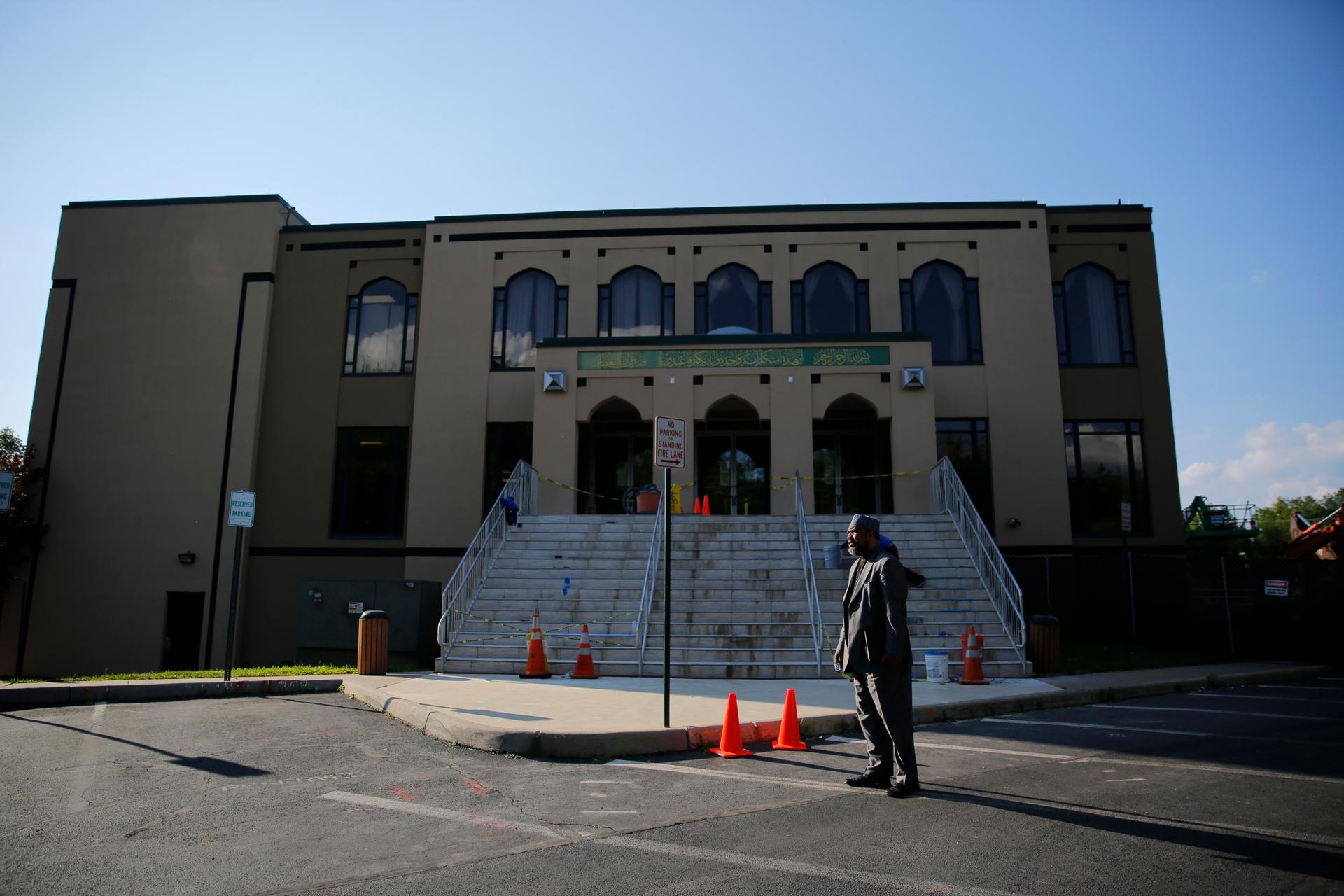Imam Mohamed Magid stands in front of the All Dulles Area Muslim Society (ADAMS) mosque in Sterling, Virginia, on May 19, 2016. In a statement after the murder of 17-year-old Nabra Hassanen, Magid said, “We are devastated and heartbroken as our community undergoes and processes this traumatic event … It is a time for us to come together to pray and care for our youth."
In normal times, the Islamic holy month of Ramadan is a time for fasting, prayer and contemplation. But after this week’s murder of a 17-year-old high school girl in Sterling, Virginia, it’s also a time for mourning.
Her name was Nabra Hassanen.
Hassanen was with a group of young people after late-night prayers at the All Dulles Area Muslim Society (ADAMS) mosque when they were reportedly involved in an altercation with a 22-year-old driver, Darwin Martinez Torres.
Police say that Martinez Torres got out of his car with a baseball bat to chase the group of youths, and that he struck Hassanen with the bat and then put her into his car and drove off.
On Sunday afternoon, Hassanen’s body was found in a pond a few miles away from the mosque. Martinez Torres is being charged with murder.
Police say there is no evidence that the incident was a hate crime.
“This tragic case appears to be the result of a road rage incident involving the suspect, who was driving and who is now charged with murder, and a group of teenagers,” police from Fairfax County, Virginia, said in a statement on Monday afternoon. “Our investigation at this point in no way indicates the victim was targeted because of her race or religion.”
Many people expressed their skepticism that the victim’s religion had nothing to do with the killing. Among them was Hassanen's father, Mohmoud Hassanen.
“He killed her because she’s a Muslim — this is what I tell the detective,” Hassanen said in a story in The Washington Post. “Why was he running behind the kids wearing Islamic clothes with a baseball stick? Why, when my daughter fell down, why did he hit her? For what? We don’t know this guy. He doesn’t know us. We don’t hate anybody because of religion or color. I teach my kids to love everybody.”
“I don’t want any family to feel like what I feel now,” Hassanen said. “It’s too hard. I raised my daughter for 17 years. Somebody took her life for no reason.”
“I hope she’s in paradise.”
Mosques around the country are being encouraged to step up their security. Hassanen’s murder did not occur in isolation, however, says Arsalan Iftikhar, a human rights lawyer who prays at the ADAMS mosque.
“It’s really shaken up the entire American Muslim community,” says Iftikhar, the author of “Scapegoats: How Islamophobia Helps Our Enemies and Threatens Our Freedoms.”
Iftikhar says going out for late-night snacks during the month of Ramadan is sort of a rite of passage for young Muslims in America. And now, he says it feels like that rite of passage has come under attack.
“It’s really struck home,” Iftikhar says, “for millions of people around the country who now either feel trepidation or fear for letting their kids go.”
Iftikhar says Hassanen and her friends were “visibly Muslim,” meaning that they were wearing headscarves and abayas, which are long, traditional dresses that made them easily identifiable as Muslims.
American Muslims are painfully aware of the uptick in anti-Muslim incidents in recent weeks and months, Iftikhar says. As an example, he points out the attack in Portland last month that ended with the stabbing death of two men who tried to intervene when a man was harassing two Muslim girls.
Just this week, a man drove a van into a group of Muslims outside of a mosque in London. And in January, six worshippers were shot dead in an attack outside of a mosque in Quebec City.
“These are not just isolated incidents,” Iftikhar says. “People are becoming emboldened because of the rhetoric that we’ve seen from people like Donald Trump.”
In some ways, the motivation of the perpetrator in Hassanen’s death is secondary. That’s because nothing will bring her back, Iftikhar says.
“What I really, really hope is that young Muslim kids … do not feel scared,” Iftikhar says.
Young Muslims should not be afraid of expressing their religious identity, he adds, and doing things like going out at night for some pancakes or omelets after late-night prayers at their mosques during Ramadan.
Our coverage reaches millions each week, but only a small fraction of listeners contribute to sustain our program. We still need 224 more people to donate $100 or $10/monthly to unlock our $67,000 match. Will you help us get there today?
